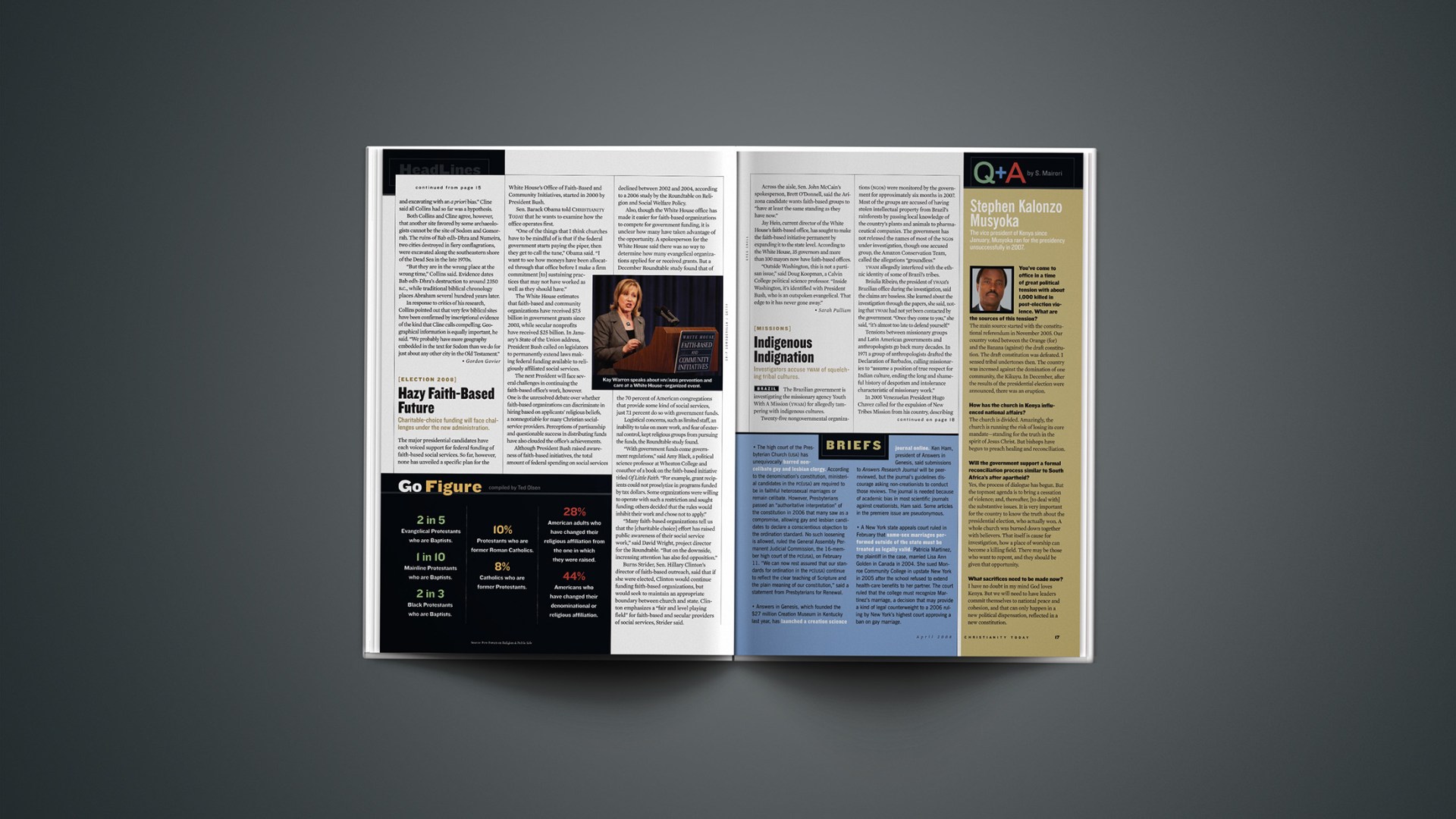The major presidential candidates have each voiced support for federal funding of faith-based social services. So far, however, none has unveiled a specific plan for the White House’s Office of Faith-Based and Community Initiatives, started in 2000 by President Bush.
Sen. Barack Obama told Christianity Today that he wants to examine how the office operates first.
“One of the things that I think churches have to be mindful of is that if the federal government starts paying the piper, then they get to call the tune,” Obama said. “I want to see how moneys have been allocated through that office before I make a firm commitment [to] sustaining practices that may not have worked as well as they should have.”
The White House estimates that faith-based and community organizations have received $7.5 billion in government grants since 2003, while secular nonprofits have received $25 billion. In January’s State of the Union address, President Bush called on legislators to permanently extend laws making federal funding available to religiously affiliated social services.
The next President will face several challenges in continuing the faith-based office’s work, however. One is the unresolved debate over whether faith-based organizations can discriminate in hiring based on applicants’ religious beliefs, a nonnegotiable for many Christian social-service providers. Perceptions of partisanship and questionable success in distributing funds have also clouded the office’s achievements.
Although President Bush raised awareness of faith-based initiatives, the total amount of federal spending on social services declined between 2002 and 2004, according to a 2006 study by the Roundtable on Religion and Social Welfare Policy.
Also, though the White House office has made it easier for faith-based organizations to compete for government funding, it is unclear how many have taken advantage of the opportunity. A spokesperson for the White House said there was no way to determine how many evangelical organizations applied for or received grants. But a December Roundtable study found that of the 70 percent of American congregations that provide some kind of social services, just 7.1 percent do so with government funds.
Logistical concerns, such as limited staff, an inability to take on more work, and fear of external control, kept religious groups from pursuing the funds, the Roundtable study found.
“With government funds come government regulations,” said Amy Black, a political science professor at Wheaton College and coauthor of a book on the faith-based initiative titled Of Little Faith. “For example, grant recipients could not proselytize in programs funded by tax dollars. Some organizations were willing to operate with such a restriction and sought funding; others decided that the rules would inhibit their work and chose not to apply.”
“Many faith-based organizations tell us that the [charitable choice] effort has raised public awareness of their social service work,” said David Wright, project director for the Roundtable. “But on the downside, increasing attention has also fed opposition.”
Burns Strider, Sen. Hillary Clinton’s director of faith-based outreach, said that if she were elected, Clinton would continue funding faith-based organizations, but would seek to maintain an appropriate boundary between church and state. Clinton emphasizes a “fair and level playing field” for faith-based and secular providers of social services, Strider said.
Across the aisle, Sen. John McCain’s spokesperson, Brett O’Donnell, said the Arizona candidate wants faith-based groups to “have at least the same standing as they have now.”
Jay Hein, current director of the White House’s faith-based office, has sought to make the faith-based initiative permanent by expanding it to the state level. According to the White House, 35 governors and more than 100 mayors now have faith-based offices.
“Outside Washington, this is not a partisan issue,” said Doug Koopman, a Calvin College political science professor. “Inside Washington, it’s identified with President Bush, who is an outspoken evangelical. That edge to it has never gone away.”
Copyright © 2008 Christianity Today. Click for reprint information.
Related Elsewhere:
Christianity Today interviewed John Dilulio, the first director of the White House Office of Faith-Based and Community Initiatives.
More articles on law and politics are available in our full-coverage section.










